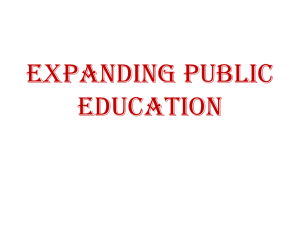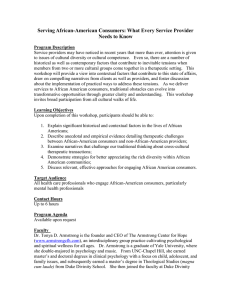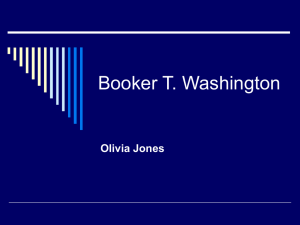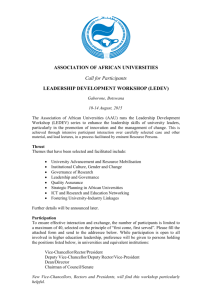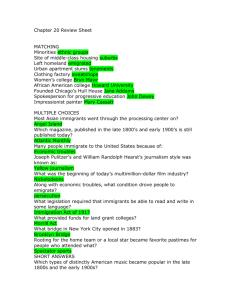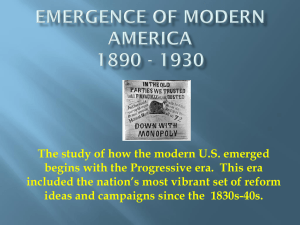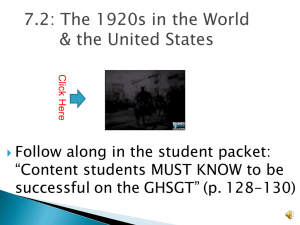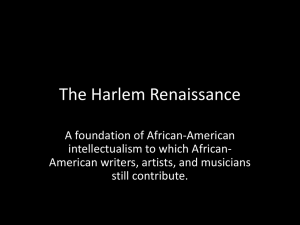Expanding Public Education
advertisement
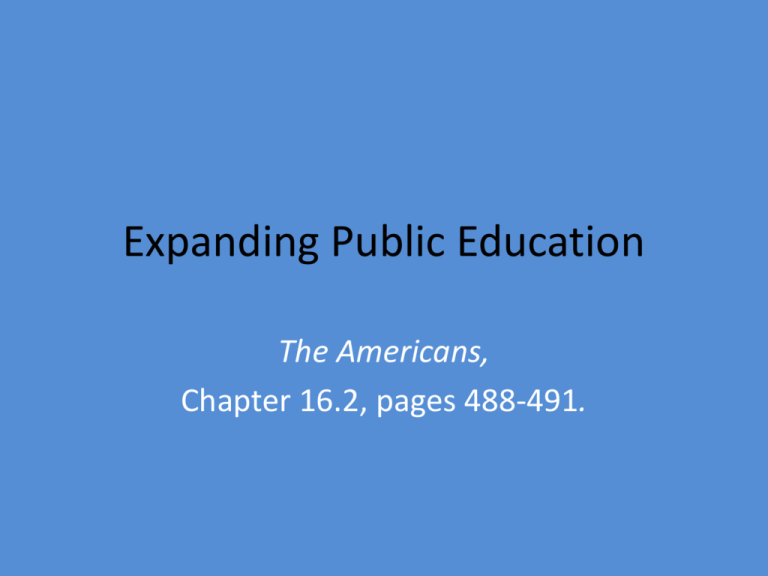
Expanding Public Education The Americans, Chapter 16.2, pages 488-491. Expanding Public Education “Although most states had established public schools by the Civil War, many school-aged children still received no formal schooling. The majority of students who went to school left within four years, and few went to high school.” ~The Americans, page 488. Schools for Children • New State Laws – 12-16 weeks annual attendance – Children ages 8-14 • School Curriculum – Reading, writing & arithmetic – Criticized for emphasis on memorization • Kindergartens – child care for employed mothers – Grew from 200-3,000 between 1880-1900 • Differing opportunities – 62% of white children attended Elementary school, only 34% of African-American children The Growth of High Schools • Economy required workers with greater technical skills – Operate machinery – Chance to climb corporate ladder (Andrew Carnegie) • New High School Offerings – Science, Civics & Social Studies – Vocational Courses • • • • Drafting Carpentry Mechanics Typing Racial Discrimination • African Americans excluded from High Schools – 1890 less than 1% attend – Most go to schools with no government support – 1910 African-American High School attendance “rises” to 3% Education of Immigrants • Encouraged to go to Schools – 10 million immigrants arrive between 1860-1890 – Become “Americanized” – Learn English – Catholic schools established • Provided alternative • Public schools often taught from the Protestant Bible – Night Schools • Taught English & citizenship courses – Henry Ford • Aimed to “Americanize” immigrants • “Great American melting pot” Expanding Higher Education “Although the number of students attending high school had increased by the turn of the century, only a minority of Americans had high school diplomas. At the same time, an even smaller minority—only 2.3%--of America’s young people attended colleges and universities.” ~The Americans, Page 490. Changes in Universities • Increased Enrollments – 1880-1920 enrollments quadruple • Entrance Requirements – Entrance exams – High School diploma • Changes in Curriculum – – – – – 1st research universities Physical sciences Modern languages Sociology & psychology Professional schools • Law • Medicine Higher Education for African Americans • African-American Colleges – Howard, Atlanta & Fisk Universities – Only 3880/9 million African Americans in college in 1900 • Booker T. Washington – Believed in skill training – Founded Tuskegee Normal and Industrial Institute • W.E.B Du Bois – Doctorate from Harvard – Niagara Movement • Immediate inclusion into mainstream American Life • Favored liberal arts education
